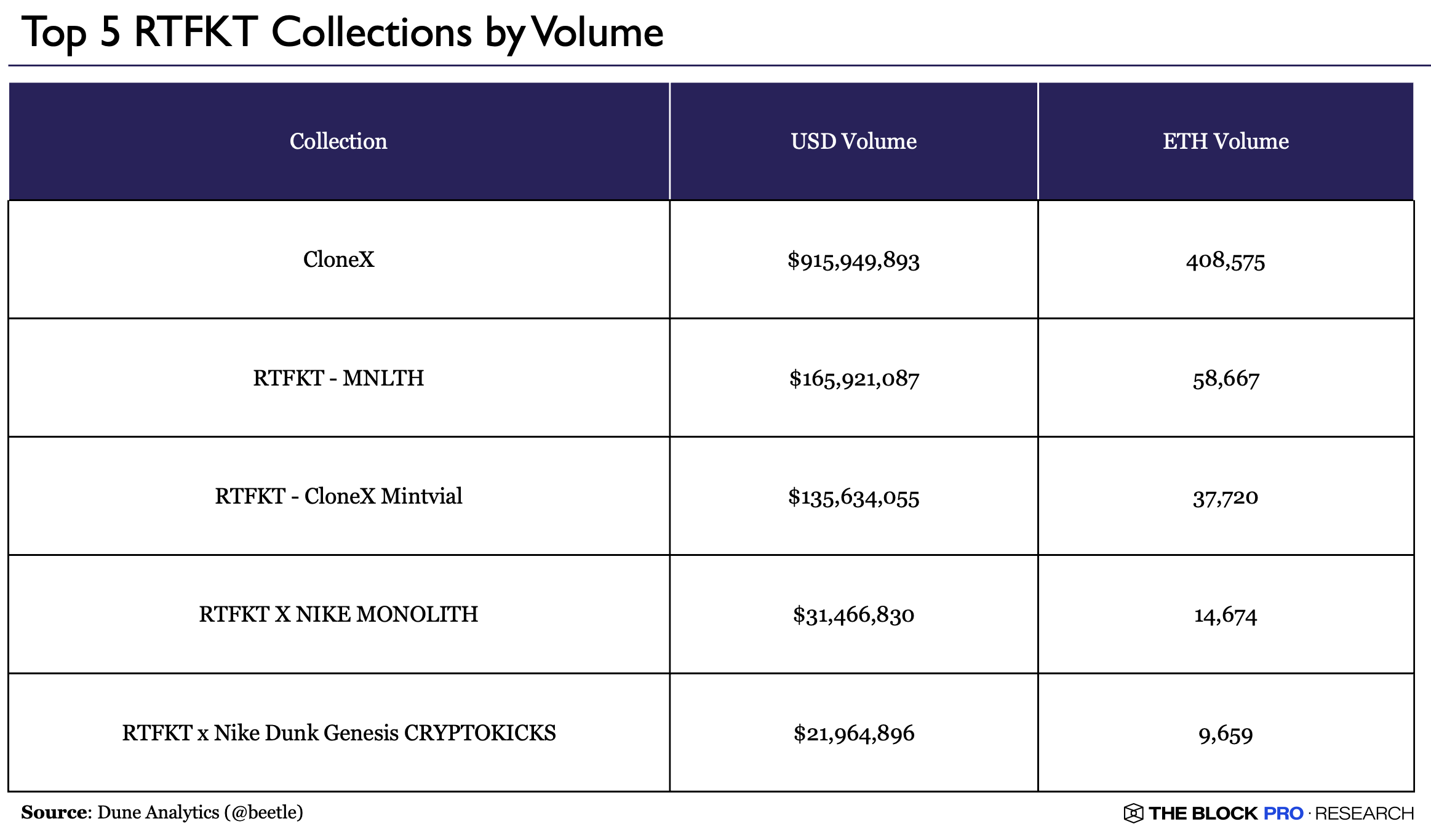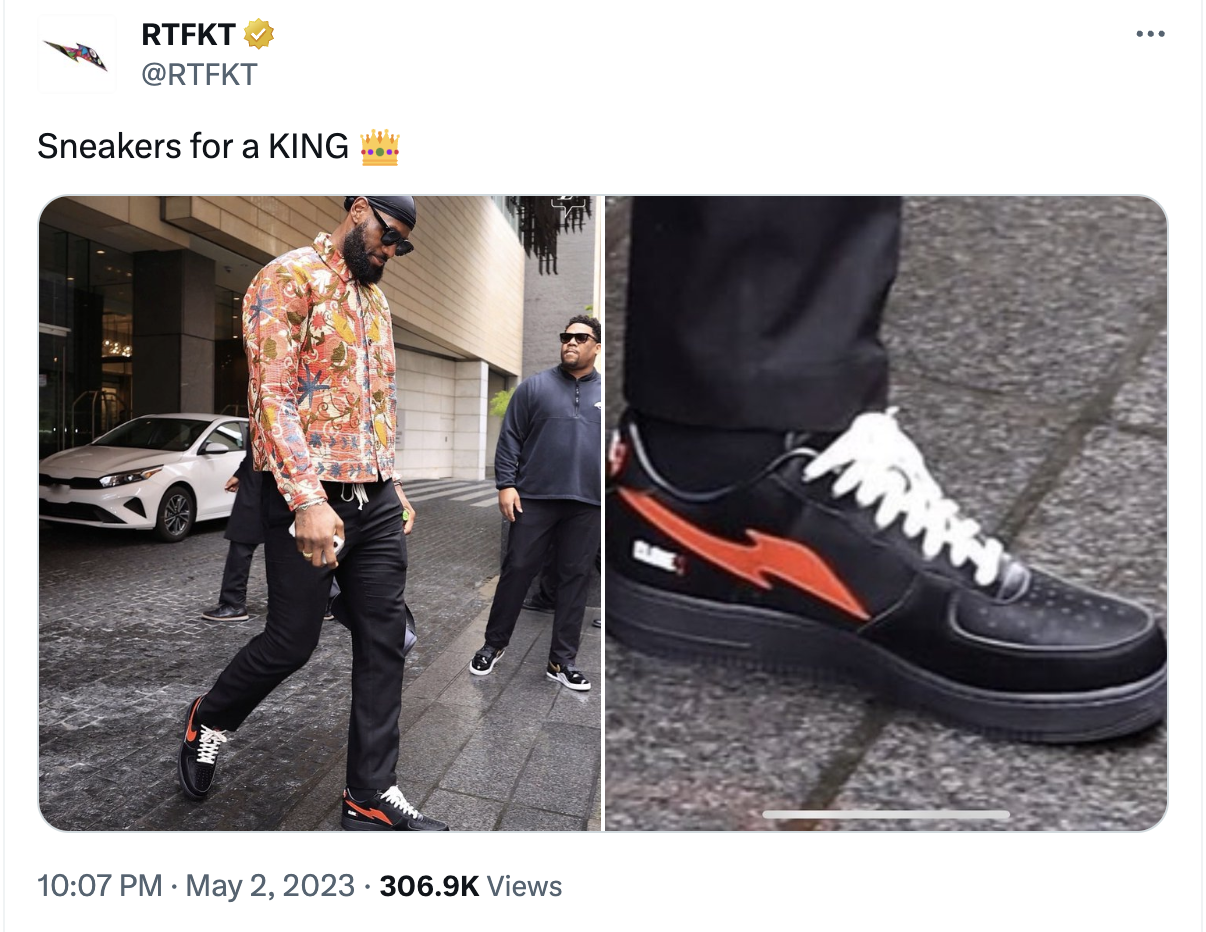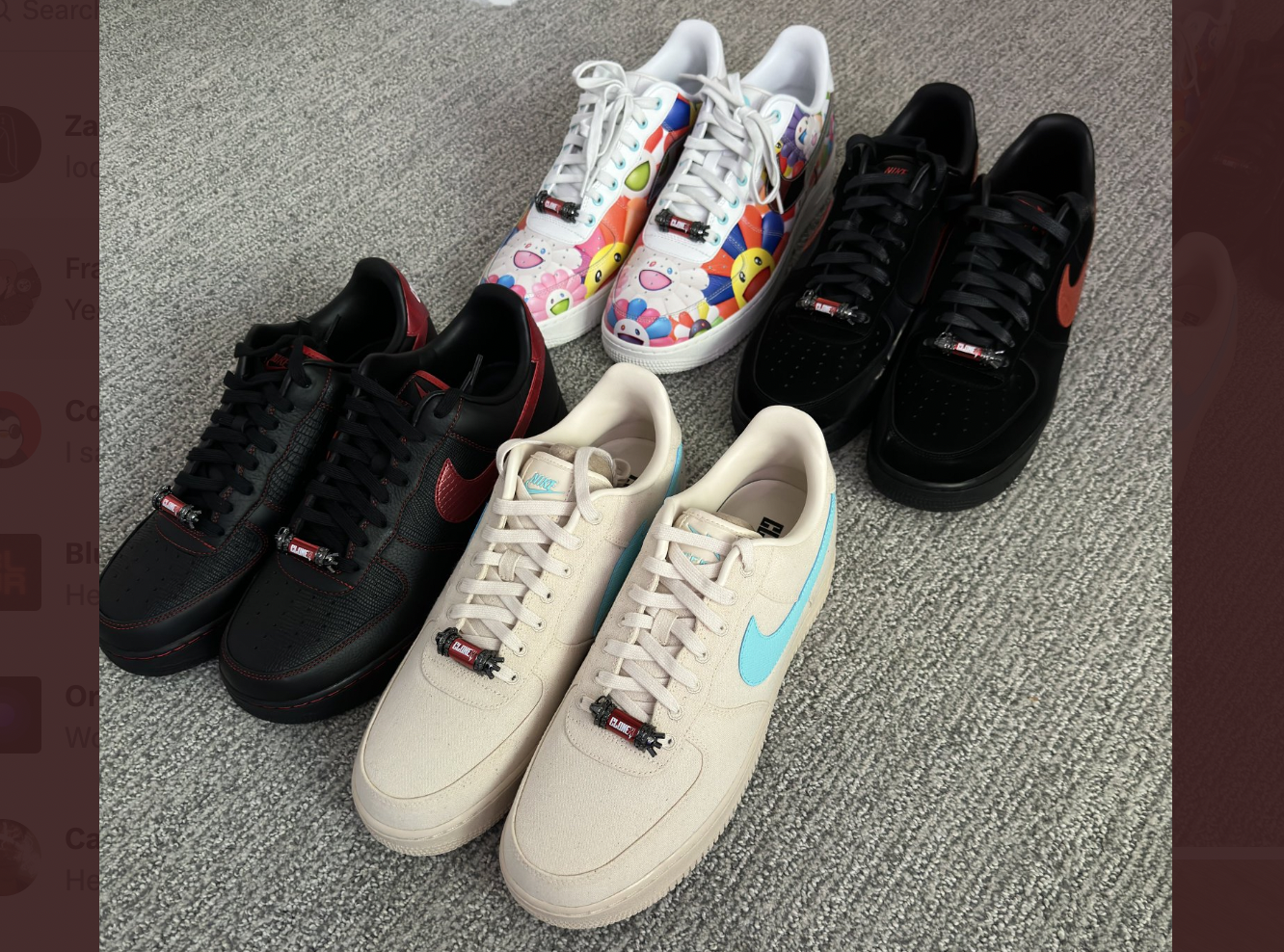While the portmanteau phygitals may eventually (hopefully) fade from existence, never to be uttered again, as a concept they seem to be here to stay.
Perhaps the most important example of this is Nike and RTFKT’s non-fungible token universe, which in less than two years, while experiencing a bear market much of the time, saw over a billion dollars in trading volume and over generated one hundred million dollars. of income.
According to data from The Block Research, Nike-RTFKT NFTs have generated nearly $1.4 billion in trading volume since December 2021. At the same time, RTFKT’s 20-plus collections, including the late 2021 CloneX-Takashi Murakami avatar NFT drop, have earned $170 million, according to DefiLlama.
While the majority of these numbers are due to the success of the CloneX collection, which launched during the height of crypto’s bull run, the volume and revenue of the other collections are still notable. In some cases, owning the NFTs has given consumers the opportunity to order limited-edition Nikes, which come with a special authentication tag embedded in the shoes.
Thousands of sneakerheads, and even NBA great LeBron James, have taken advantage of this opportunity.

The Block Pro research
Sneaker collector, NFT enthusiast
“The quality is really, really good. I would say better than any other Nike shoe I have,” said photographer Frankie Sutera, a longtime sneaker collector and NFT enthusiast living in Utah. Sutera ordered a total of nine pairs of Nike-RTFKT shoes after acquiring the necessary NFTs.
During the final ‘forging’ he ordered eight pairs of special edition RTFTK Air Force 1s and most recently one pair of the Dunk Genesis Cryptokicks, available to order last month. The “forgings” are special limited windows where Nike-RTFKT token owners can order physical pairs of shoes, choosing the size and design they want.
The recent counterfeiting of the Dunk Genesis Cryptokicks, which ran from October 18 to 30, saw trading for the required NFTs jump to $613,000 over the month, according to CryptoSlam! facts. In September, token trading registered a tepid $85,000, meaning the October peak marked a month-over-month gain of more than 600%.
“The excitement we continue to see for Nike Cryptokicks at OpenSea… shows how this technology gives fans inherent ownership,” said Kelly DiGregorio, vice president of content partnerships at major NFT marketplace OpenSea.

NBA great LeBron James seen wearing Nike-RTFKT shoes. Image: RTFKT.
Co-founder of the popular Pudgy Penguins NFT collection, Cole Villemain posted a video to X during the Dunks forging event to express his enthusiasm for RTFKT’s work. In the video he unboxes a pair of each Air Force 1s to his more than 125,000 followers, while also telling them how “tons of people reacted to” a pair of Nike-RTFKT sneakers he wore at a Beeple event.
“The Dunk forging just happened… super excited about that… I forged 27 pairs, all three colorways,” Villemain said in the video.
During the Dunk forge, while a pair cost around $220 for people who owned the NFTs, some people tried to sell the shoes on secondary markets like eBay for as much as $1,000. People who ordered Dunks during last month’s forge will likely have to wait until at least June 2024 to receive them, according to RTFKT.
Gamechanger: Nike buys RTFKT
Nike the takeover of RTFKT 2021 may have seen a boost in the NFT business model for limited-edition sneakers, but the Web3 startup had been selling tokens and shipping sneakers before the shoe giant came along. In early 2021, RTFKT sold $3.1 million in NFTs in seven minutes, according to one of the co-founders. Owners of the NFTs could do that then cash in for a pair of real shoes. The RTFKT shoes, made in collaboration with artist Considered collectibles by many, FEWOCiOUS are now selling for thousands of dollars online.
Other major footwear and apparel companies such as Adidas and Puma have also both shown interest in the tokenization of real-world assets as a means of ensuring authentication or enticing consumers with exclusive content. But it’s not just shoe companies. Other tokenizations of real-world assets include products as different as sports cars and psychedelic mushrooms.
One big advantage – often mentioned utility in the world of NFTs is the merging of digital and physical using blockchain authentication, which is often achieved by using a smartphone to access a chip or tag attached or embedded in physical items, creating a phygital of is made.
The NFC tag that authenticates the Nike-RTFKT Air Force 1s is Sutera’s favorite part of the shoes. The labelthat is linked to a corresponding NFT via a smartphone helps prove both the authenticity and ownership of the product.
“In the sneaker world, that’s huge. The replica market is huge. More people are making fake shoes every day. How do you avoid getting ripped off by buying a pair of fake shoes? This is a super easy way to avoid this.” Sutera said. “If nothing else comes out of NFTs, I think this is a fantastic use case.”

Nike RTFKT Air Force 1s. Image: Frankie Sutera.

